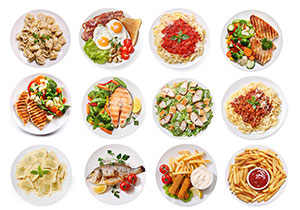
According to the National Institute of Diabetes and Digestive and Kidney Diseases (NIDDK), about 200,000 people are hospitalized for diverticulitis each year in the United States. Surprisingly, this number is only a fraction of the people who have diverticulosis.
Understanding Diverticulosis and Diverticulitis:
Diverticulosis is a condition where pouches or sacs develop in the lining of the largeintestine and bulge out through weak areas of the colon. NIDDK reported that 35 percent of U.S. adults age 50 years or younger have diverticulosis, while about 58 percent of those older than age 60 have diverticulosis. Many people never experience any symptoms and may not even know they have it.
Diverticulitis, however, occurs when these sacs become irritated, inflamed, or infected. Severe pain and serious complications can result from diverticulitis if left untreated. A mild case of diverticulitis can be treated with antibiotics, rest, and a temporary change in diet. More serious cases may require surgery.
Dietary Helps:
A patient living with diverticulosis would benefit from a diet high in fiber. In fact, a highfiber diet can help reduce diverticulitis flare-ups. However, if you have diverticulitis orhave recently had a flare up, a clear liquid diet or a low fiber diet would be beneficial toallow the colon to rest. You may find that avoiding certain foods can encourage fasterhealing.
Some foods to avoid during or after diverticulitis would include:
- Red or processed meat such as hotdogs, sausage, or cold cuts
- Foods high in sugar such as cookies, sweets, or sugary cereals
- Foods high in fat or fried foods
- High fiber foods such as beans, seeds, nuts, or legumes
Some helpful food choices during or after diverticulitis would include:
- Grains: White grains such as white bread, white crackers, or pastas
- Protein: Eggs, egg whites, and tender meat such as fish or shredded chicken
- Dairy: Cottage cheese, Greek yogurt, milk, or soft cheese
- Fruits: Canned fruits are a great option since they don’t have the fibrous skins
Diverticulitis benefits from a low fiber diet so that the inflammation in the intestines canheal. Once symptoms have subsided, easing back into a diet high in fiber can helpmaintain a healthy colon.
If you are living with diverticular disease, talk with your doctor to learn more aboutfinding sustainable ways to keep your colon healthy
Dr. Arif Ahmad specializes in laparoscopic robotic surgery and has performed over 2,000 laparoscopic robotic surgeries including surgery for diverticulitis. He is renowned in theLong Island area for his impeccable track record of safety and success









